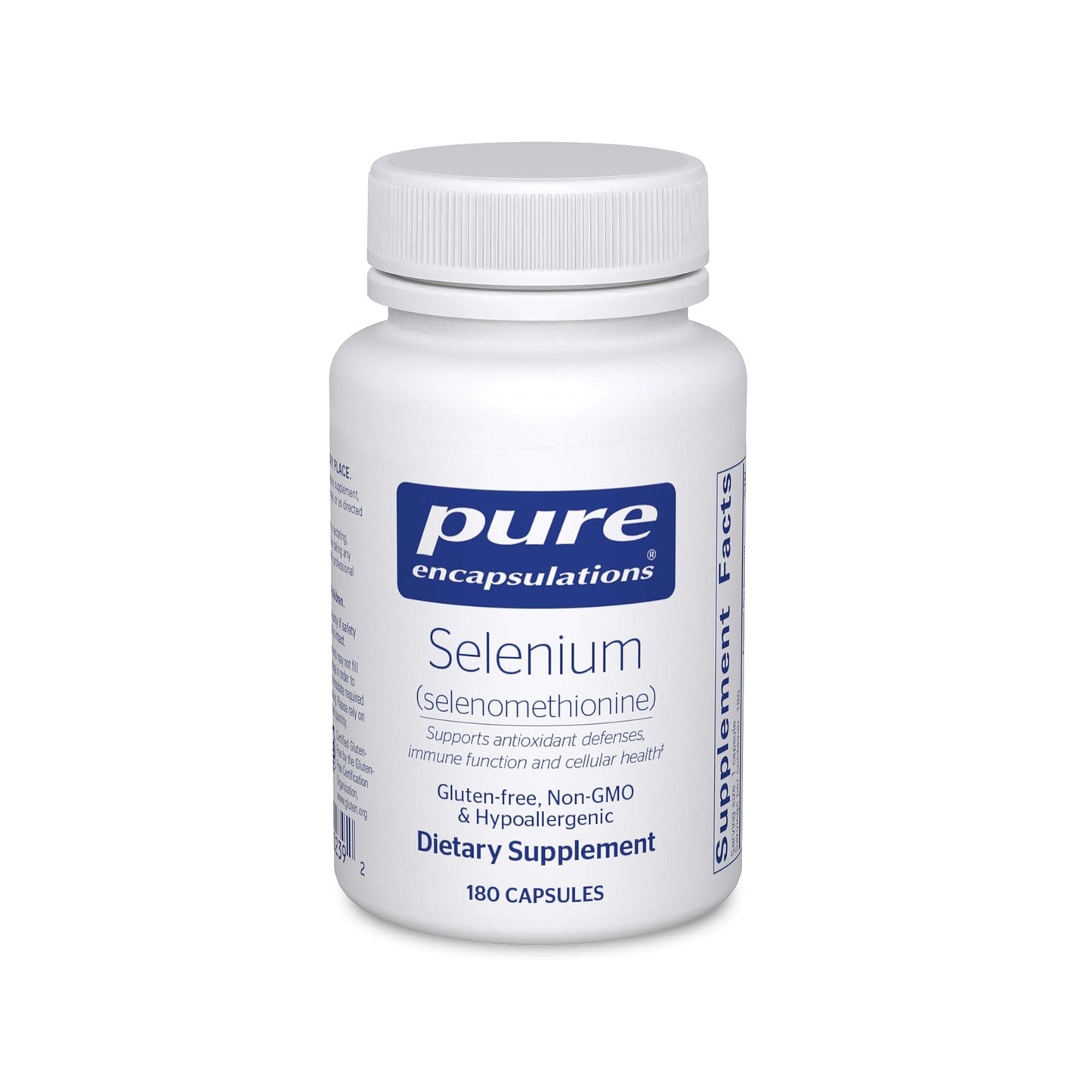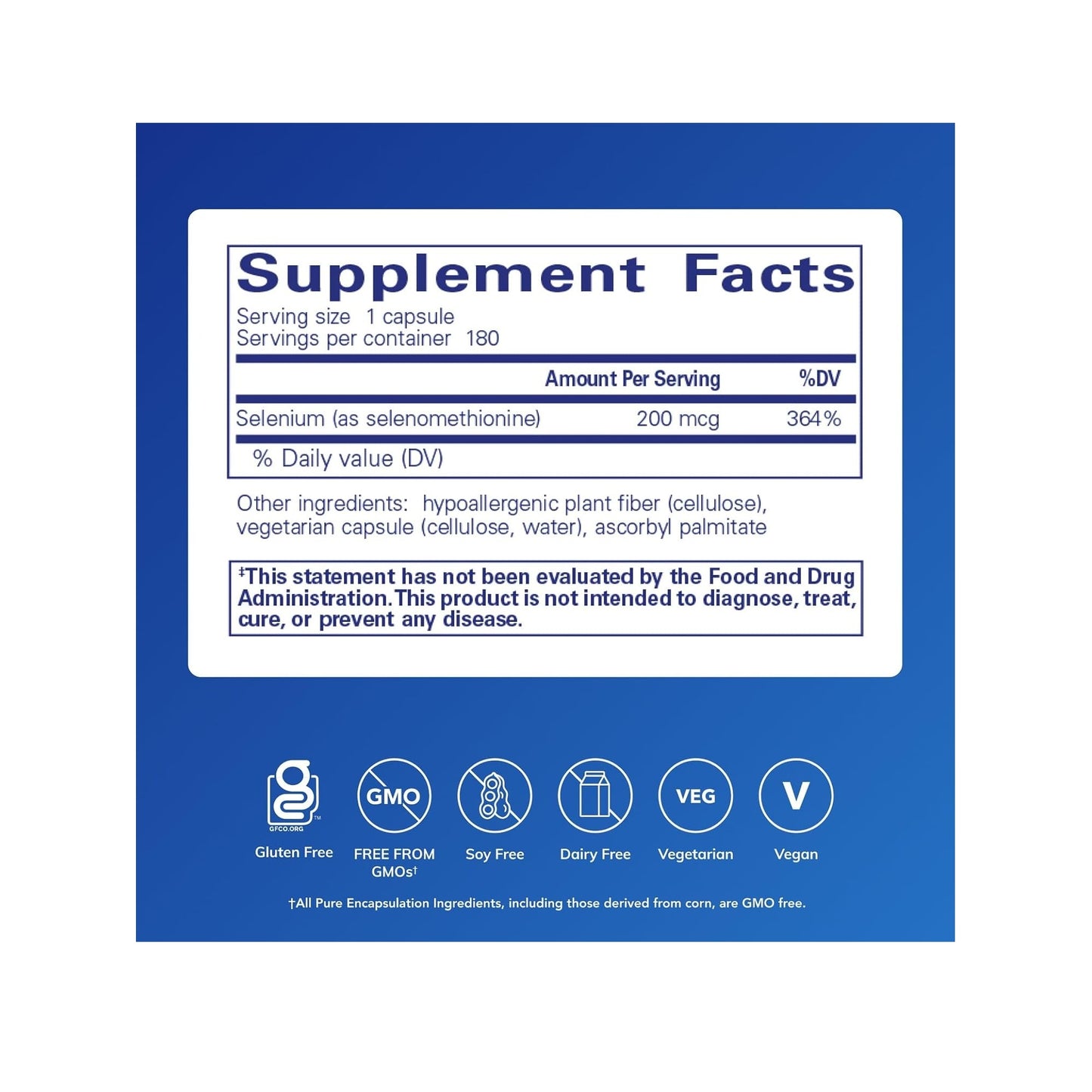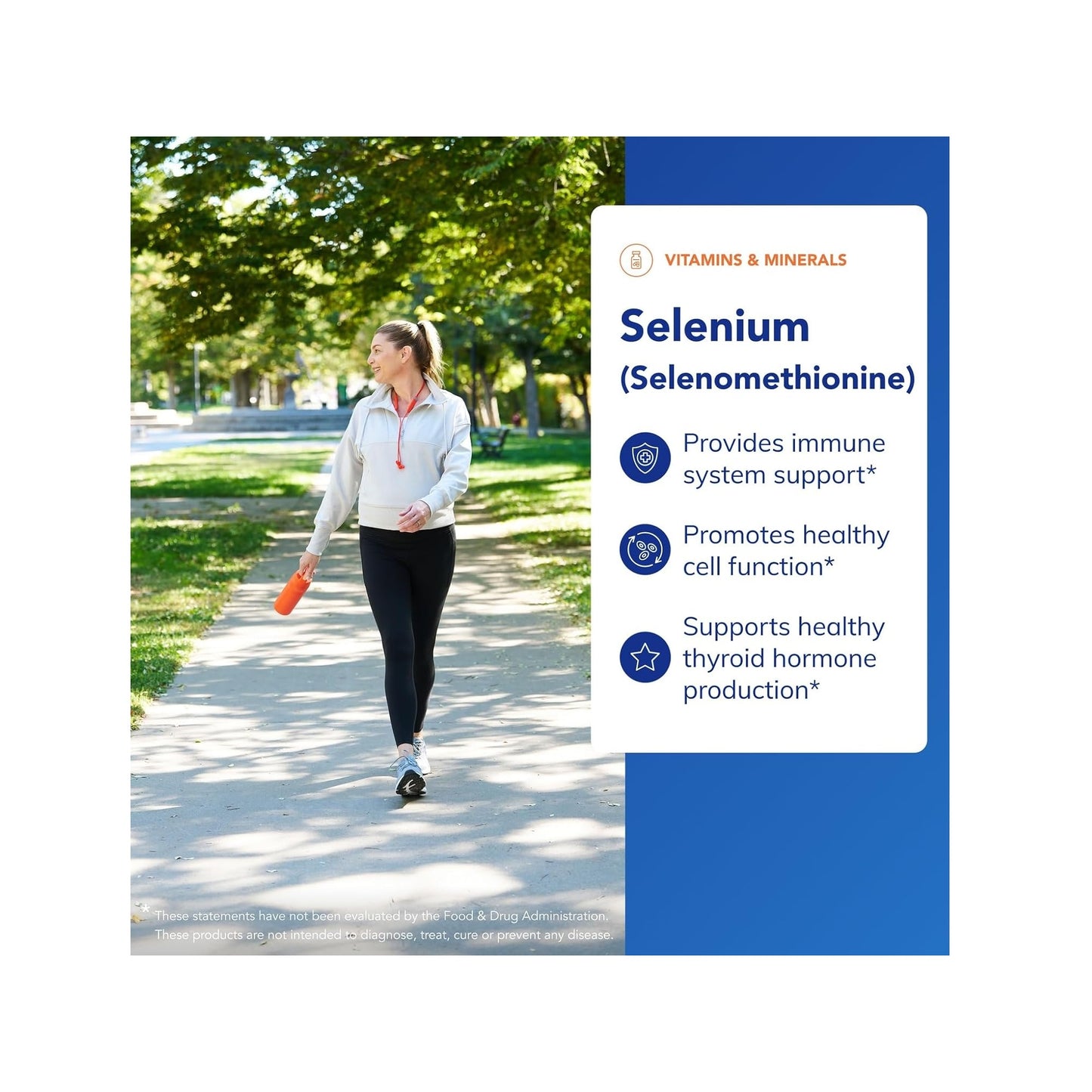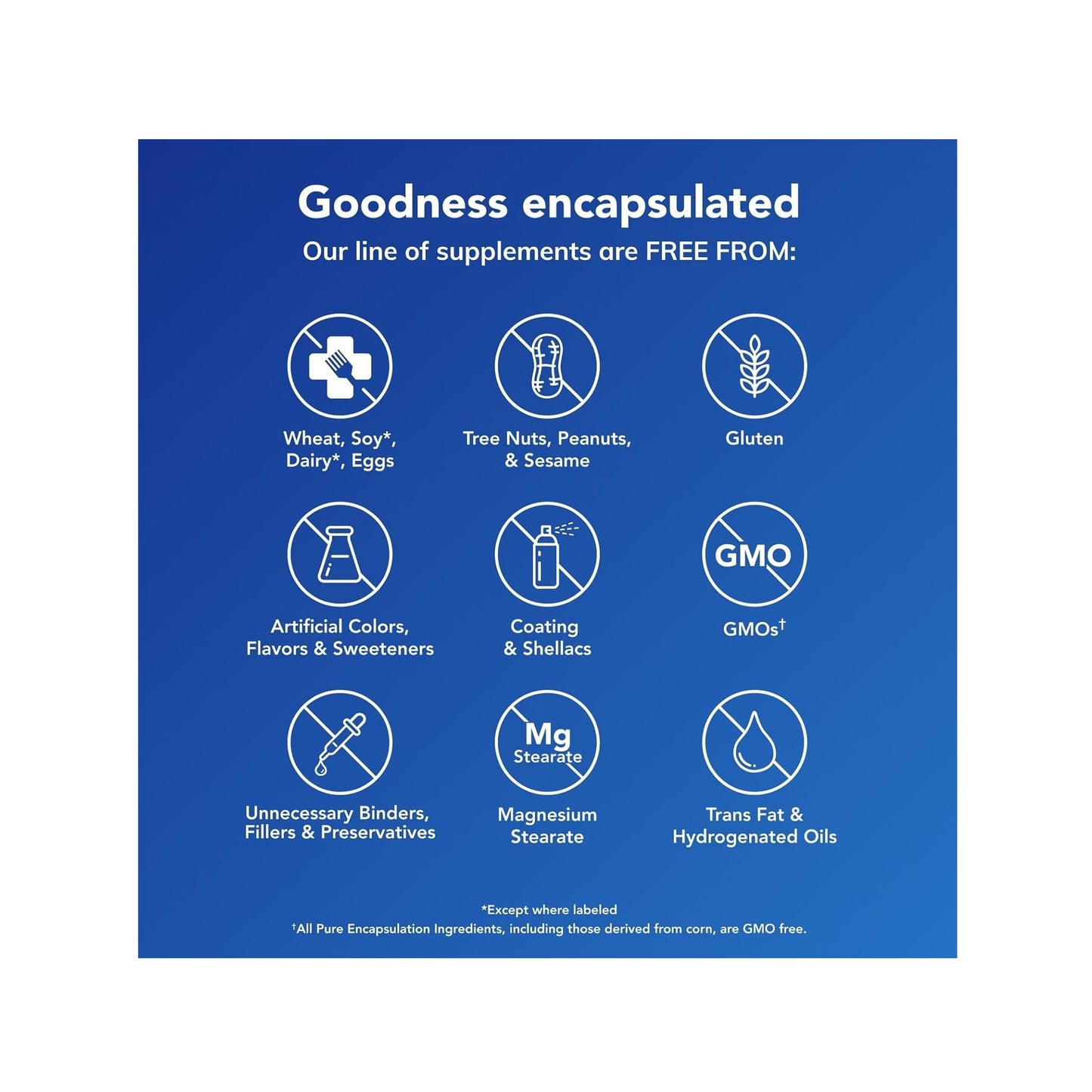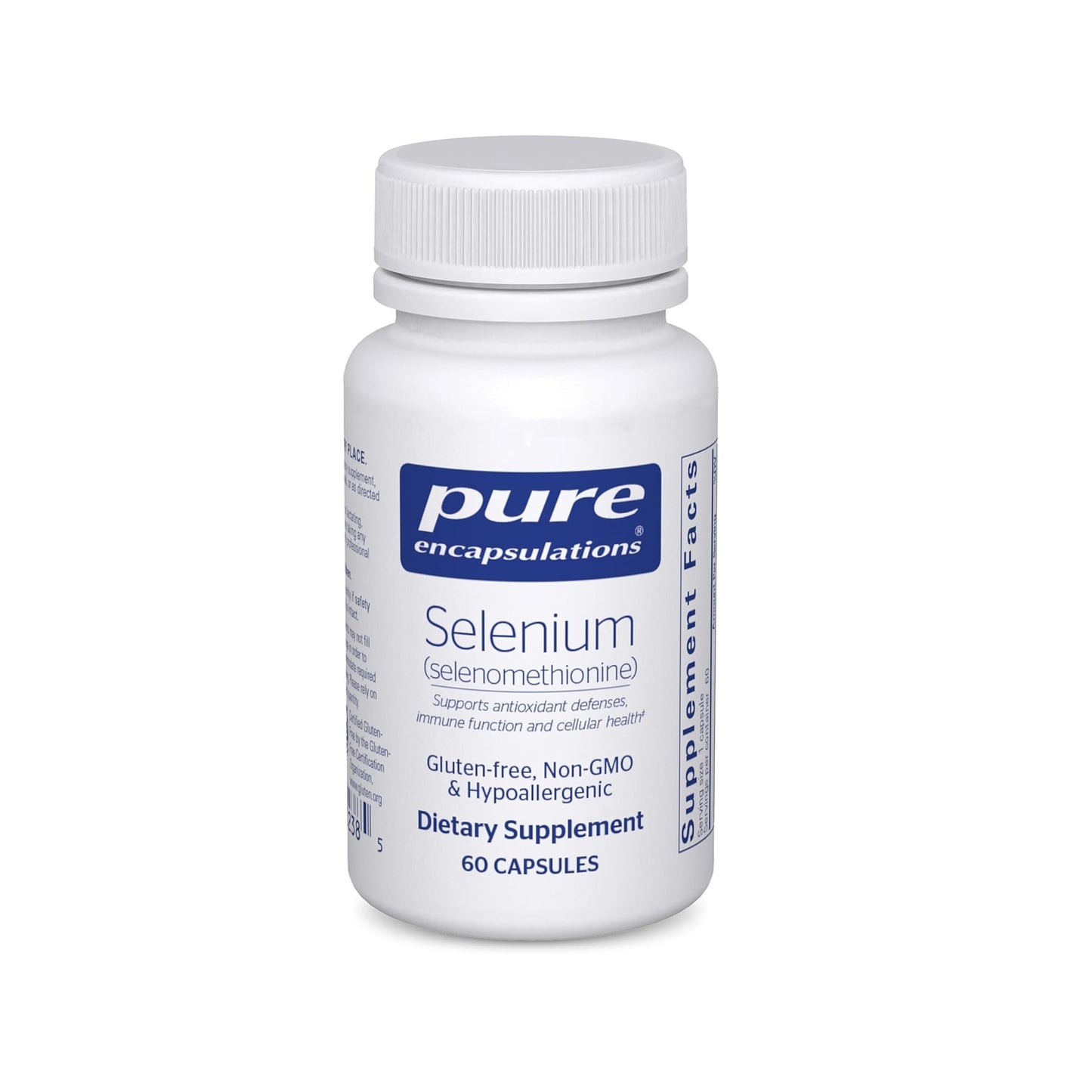Selenium (200 mcg)
Low stock! - 4 left
Low stock! - 3 left
Why Selenium?
Selenium is a natural antioxidant that delays the oxidation of polyunsaturated fatty acids and preserves the elasticity of tissue. Selenium is required for the production of certain prostaglandins, which promote healthy blood flow. In synergy with vitamin E, selenium promotes healthy growth and fertility, and improves the function of certain energy producing cells. Selenium also provides support for the immune system. Selenium protects normal cell function by supporting the body's natural defenses and scavenging harmful free radicals. Selenium also plays a role in the synthesis of thyroid hormones and immune function.
Selenium is derived from sodium selenite. The methionine (selenomethionine only) form is derived from Homoserine, which is produced by organic chemical synthesis. Selenomethionine serves as a storage form. The methionine is incorporated directly into proteins, releasing selenium as they are catabolized. Selenium is generally well tolerated, however large amounts can cause selenium toxicity. Symptoms of toxicity include nausea, vomiting, abdominal pain, nail changes, fatigue, irritability, hair loss, muscle pain and/or weight loss. Consult your physician for more information. Selenium may be contra-indicated with blood thinning medications. There is evidence that selenium could reduce the effectiveness of HMG-CoA reductase inhibitors. Consult your physician for more information.
Description
Why Selenium?
Selenium is a natural antioxidant that delays the oxidation of polyunsaturated fatty acids and preserves the elasticity of tissue. Selenium is required for the production of certain prostaglandins, which promote healthy blood flow. In synergy with vitamin E, selenium promotes healthy growth and fertility, and improves the function of certain energy producing cells. Selenium also provides support for the immune system. Selenium protects normal cell function by supporting the body's natural defenses and scavenging harmful free radicals. Selenium also plays a role in the synthesis of thyroid hormones and immune function.
Selenium is derived from sodium selenite. The methionine (selenomethionine only) form is derived from Homoserine, which is produced by organic chemical synthesis. Selenomethionine serves as a storage form. The methionine is incorporated directly into proteins, releasing selenium as they are catabolized. Selenium is generally well tolerated, however large amounts can cause selenium toxicity. Symptoms of toxicity include nausea, vomiting, abdominal pain, nail changes, fatigue, irritability, hair loss, muscle pain and/or weight loss. Consult your physician for more information. Selenium may be contra-indicated with blood thinning medications. There is evidence that selenium could reduce the effectiveness of HMG-CoA reductase inhibitors. Consult your physician for more information.
Selenium (200 mcg)
Low stock! - 4 left
Low stock! - 3 left
Why Selenium?
Selenium is a natural antioxidant that delays the oxidation of polyunsaturated fatty acids and preserves the elasticity of tissue. Selenium is required for the production of certain prostaglandins, which promote healthy blood flow. In synergy with vitamin E, selenium promotes healthy growth and fertility, and improves the function of certain energy producing cells. Selenium also provides support for the immune system. Selenium protects normal cell function by supporting the body's natural defenses and scavenging harmful free radicals. Selenium also plays a role in the synthesis of thyroid hormones and immune function.
Selenium is derived from sodium selenite. The methionine (selenomethionine only) form is derived from Homoserine, which is produced by organic chemical synthesis. Selenomethionine serves as a storage form. The methionine is incorporated directly into proteins, releasing selenium as they are catabolized. Selenium is generally well tolerated, however large amounts can cause selenium toxicity. Symptoms of toxicity include nausea, vomiting, abdominal pain, nail changes, fatigue, irritability, hair loss, muscle pain and/or weight loss. Consult your physician for more information. Selenium may be contra-indicated with blood thinning medications. There is evidence that selenium could reduce the effectiveness of HMG-CoA reductase inhibitors. Consult your physician for more information.
Description
Why Selenium?
Selenium is a natural antioxidant that delays the oxidation of polyunsaturated fatty acids and preserves the elasticity of tissue. Selenium is required for the production of certain prostaglandins, which promote healthy blood flow. In synergy with vitamin E, selenium promotes healthy growth and fertility, and improves the function of certain energy producing cells. Selenium also provides support for the immune system. Selenium protects normal cell function by supporting the body's natural defenses and scavenging harmful free radicals. Selenium also plays a role in the synthesis of thyroid hormones and immune function.
Selenium is derived from sodium selenite. The methionine (selenomethionine only) form is derived from Homoserine, which is produced by organic chemical synthesis. Selenomethionine serves as a storage form. The methionine is incorporated directly into proteins, releasing selenium as they are catabolized. Selenium is generally well tolerated, however large amounts can cause selenium toxicity. Symptoms of toxicity include nausea, vomiting, abdominal pain, nail changes, fatigue, irritability, hair loss, muscle pain and/or weight loss. Consult your physician for more information. Selenium may be contra-indicated with blood thinning medications. There is evidence that selenium could reduce the effectiveness of HMG-CoA reductase inhibitors. Consult your physician for more information.
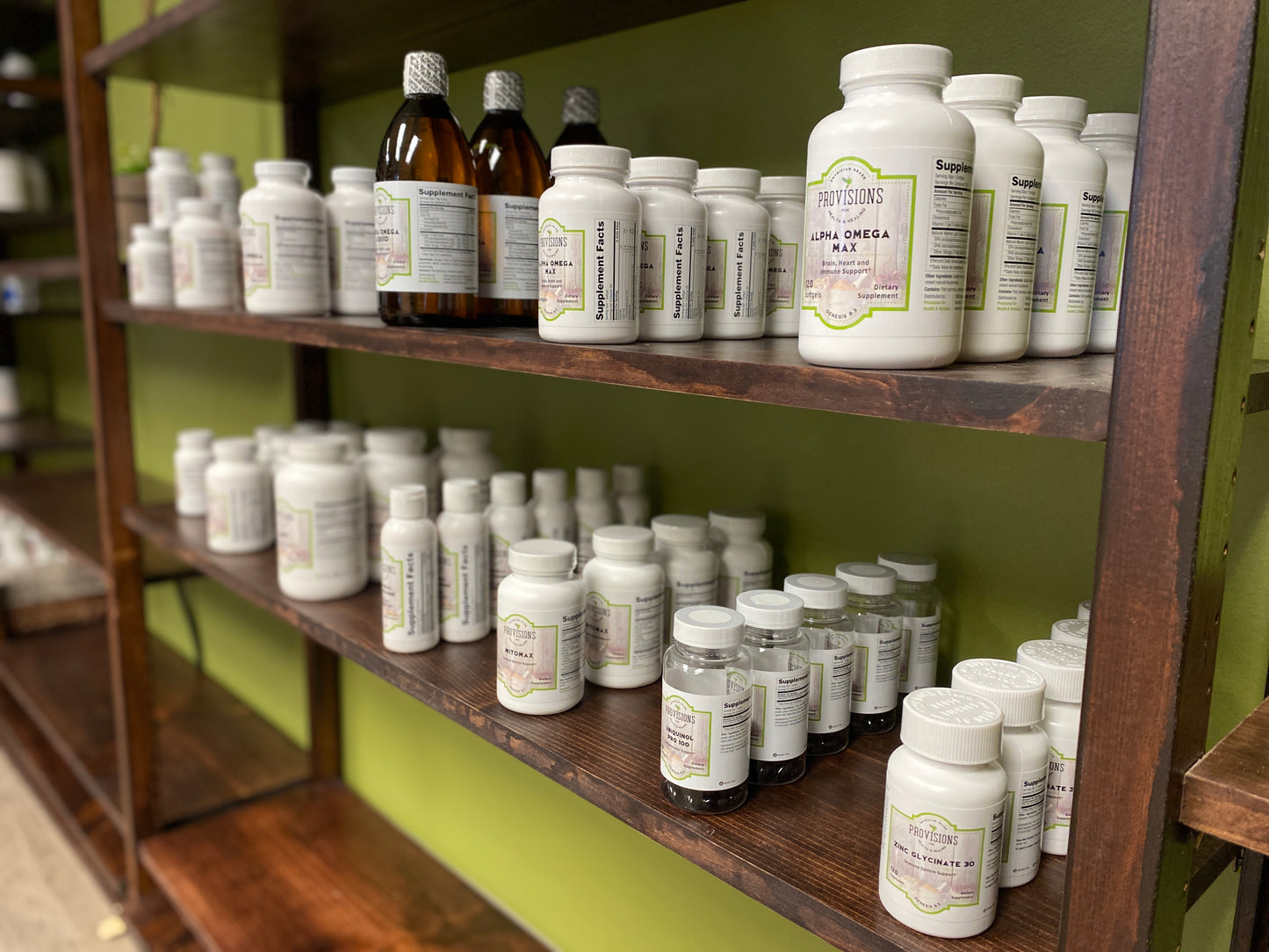
Provisions Sells Provisions!
Along with the plethora of other brands we sell, we also have our own brand of select products! Come check us out!

